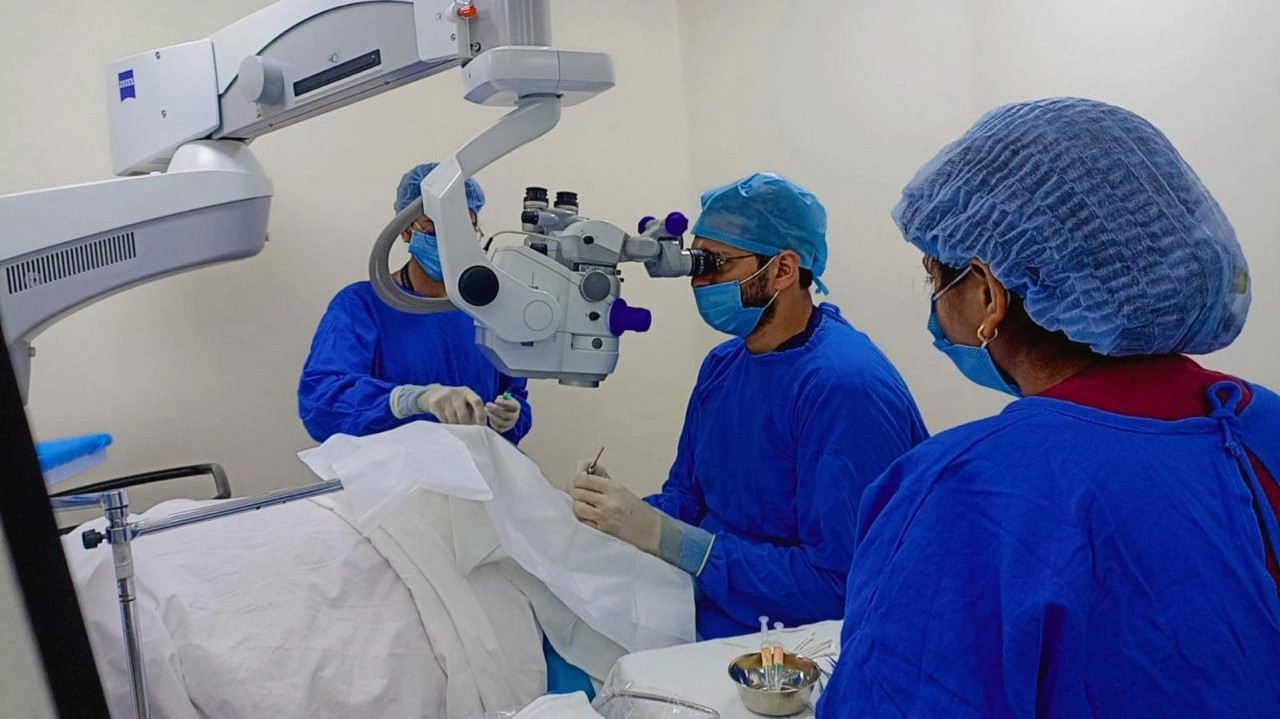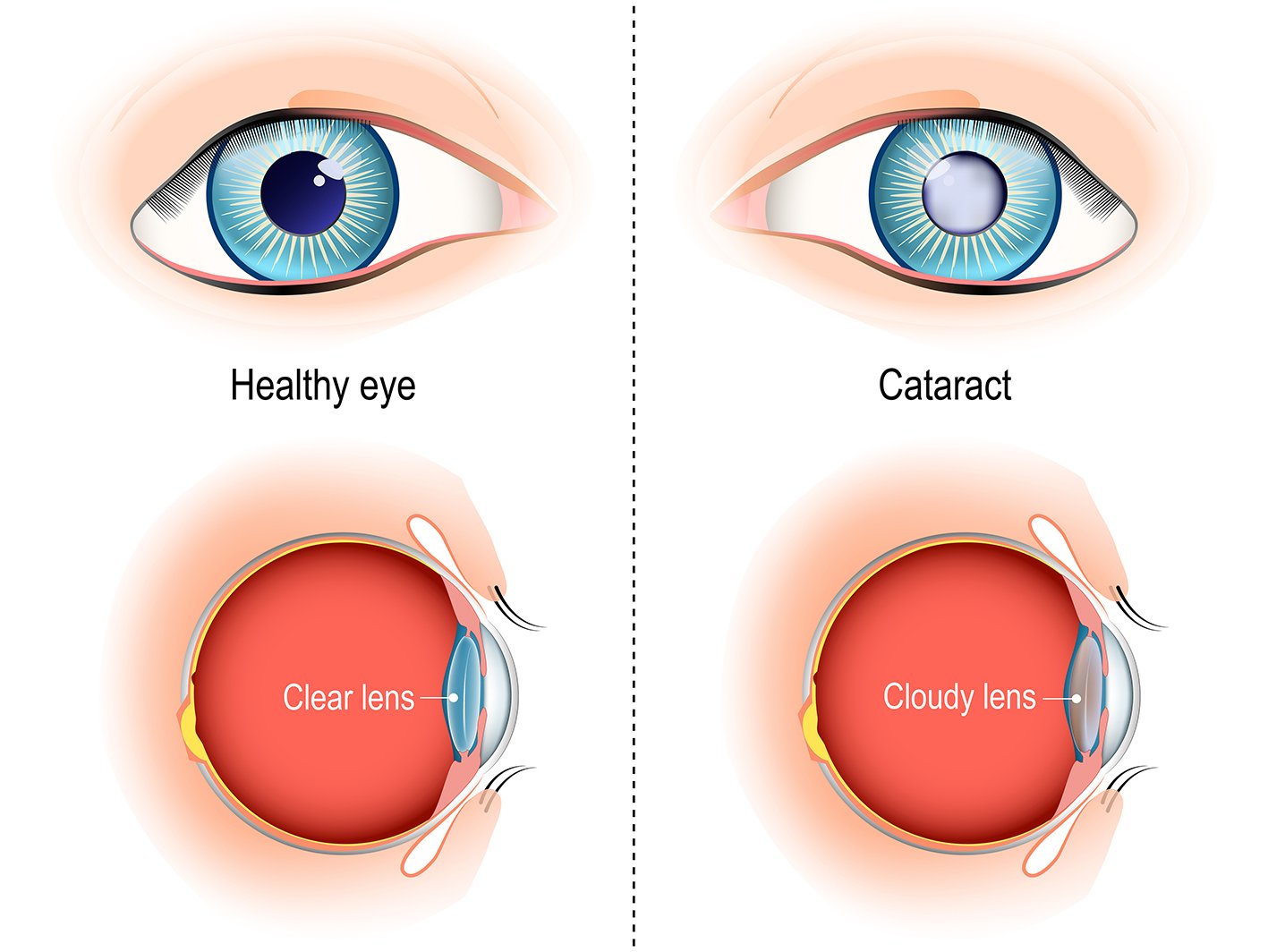
-
 Posted By Akio
Posted By Akio -
-
Comments 0
Cataract surgery is one of the most common surgery performed worldwide and is highly effective. This operation restores millions of individuals’ vision, significantly improving their lifestyle.
Whether you are considering cataract surgery for yourself or any of your loved ones you must understand the whole process, along with possible complications and essential recovery tips. In the following article, we aim to delve into all the possible prospects of getting cataract surgery.
What Is Cataract Surgery?
Cataract surgery is a medical procedure that is designed to remove the clouded lens from your eye and then replace it with an artificial lens, which is known as an intraocular lens or IOL. Cataracts usually develop with the natural process of aging. It impairs an individual’s vision by making it blurry, hazy, or less colourful. If this condition is left untreated it may lead to permanent blindness.
In today’s modern times, cataract surgery is minimally invasive and is highly precise with all the advanced technologies. This operation has a high success rate which makes it a safest and effective way to restore someone’s vision.

The Cataract Surgery Procedure
Here’s an overview of the various steps of getting cataract surgery:
- Preoperative Preparation:
Your ophthalmologist will conduct a comprehensive eye examination to assess the severity of the cataract and determine the best type of IOL for your requirement. Then measurements of your eye will be taken to ensure the correct IOL power is chosen. Lastly, you may be advised to stop certain medications before the procedure to ensure a smooth surgery.
- The Surgery:
Local anesthesia is used to numb the eye, and you may be given a sedative to help you relax. Before that an eyedrop is used to dilate your pupil and then a tiny incision is made on the cornea.
For lens removal, a technique called phacoemulsification is used, the surgeon employs ultrasound energy to break up the clouded lens, which is then gently suctioned out.
Lastly for IOL placement, the artificial lens is inserted through the incision and positioned correctly. This incision usually gets healed without stitches.
- Postoperative Steps:
The entire cataract surgery procedure typically lasts 15-30 minutes. However, patients are monitored briefly before being allowed to go home the same day.
Cataract Surgery Recovery
Recovery from a cataract surgery is generally quick, but taking proper care during this period is crucial to get the optimal results. Here are the key stages you should know about:
- Immediate Recovery
- Most patients notice an improvement in their vision within 24-48 hours, though some blurriness is normal initially.
- You will be given an eye shield to wear, especially while sleeping, to protect the operated eye.
- Eye drops will also be provided to prevent any infection and reduce inflammation.
- Short-Term Recovery
- You must avoid any strenuous activities, heavy lifting, or bending over, as these can increase pressure in your eye.
- Refraining from rubbing or touching the eye is another important point to be noted.
- Protect your eye from bright light by wearing sunglasses outdoors.
- It’s normal to experience mild discomfort, light sensitivity, or watery eyes during the first few days.
- Long-Term Recovery
- Attend all follow-up appointments with your ophthalmologist to monitor the healing and ensure proper adjustment of the IOL.
- The vision stabilizes within 4-6 weeks for most individuals. However, any persistent issues should be reported to your doctor promptly.

Potential Cataract Surgery Complications
While cataract surgery is highly safe, it’s important to be aware of potential complications:
- Common Issues:
- Dry eyes
- Mild inflammation
- Increased light sensitivity
- Less Common but Serious Complications:
- Infection (endophthalmitis)
- Retinal detachment
- Posterior capsule opacification (PCO), often called a “secondary cataract” (easily treatable with a laser procedure)
Conclusion
With aging multiple physical difficulties can emerge similarly cataract is one such visual impairment that disturbs one individual lifestyle. Understanding the surgery over an online article is just a basic step since it won’t give you any proper clarity to finalize your decision. Before a cataract surgery is performed there are various other components are need to be kept in mind thus you need to consult a qualified ophthalmologist to discuss your specific needs and determine the best course of action for your eyes.
At the AK Institute of Opthalmology, we take pride in having the best cataract surgeons and specialists in Delhi. Hence if you feel your vision is not clear or blurry then without wasting any time do visit and get a comprehensive check-up done.
Recent Posts
- How Mr Verma’s Sudden Vision Loss Was Reversed Through Emergency Retinal Detachment Surgery (Case Study)
- Retinal Risks After Eye Trauma: Why Even Minor Injuries Matter
- Top 10 Most Asked Retina Questions Answered by our Retina Surgeon
- How Mr Sharma Regained Vision After Sudden Retinal Detachment — Within 24 Hours of Surgery at AKIO (Case study)
- Are Retina Injections Painful? Read a patient’s experience!



